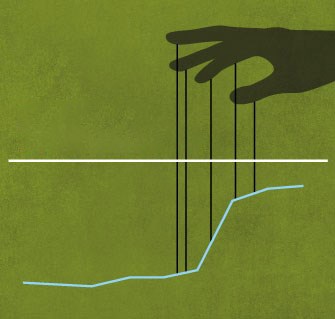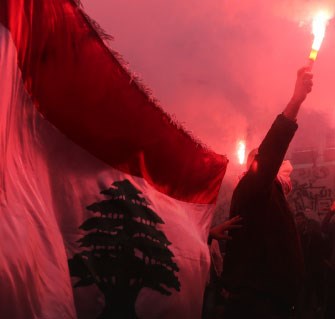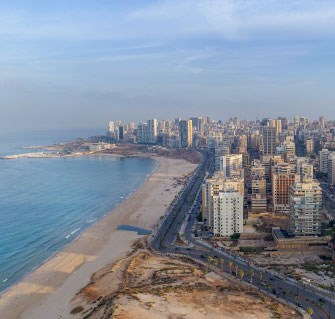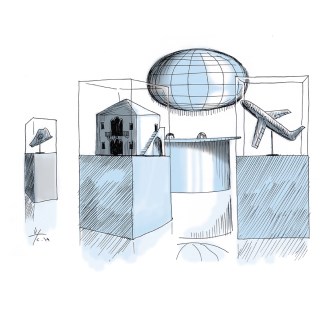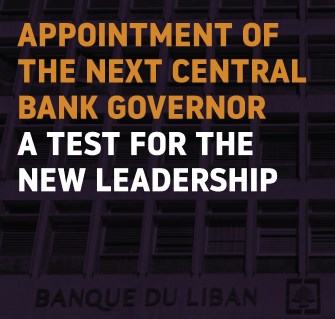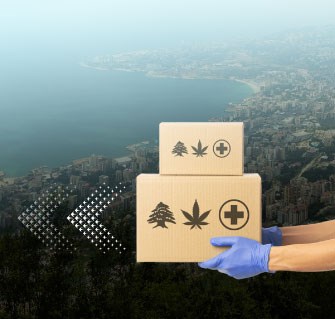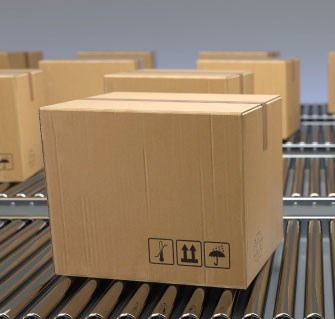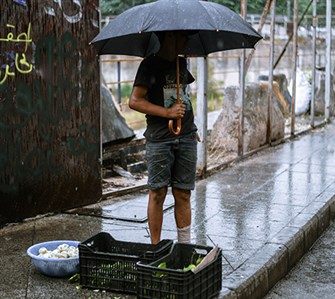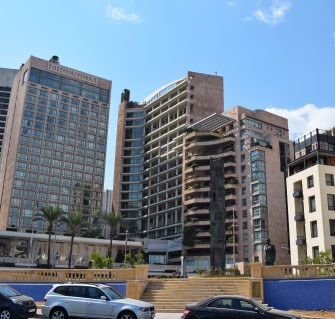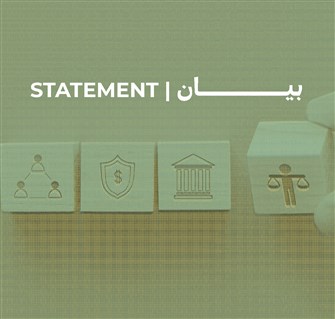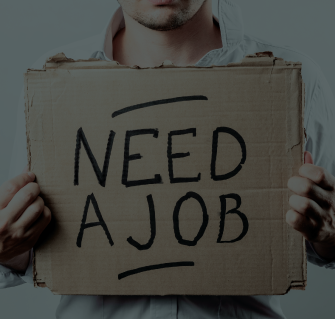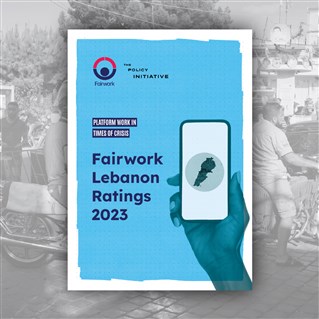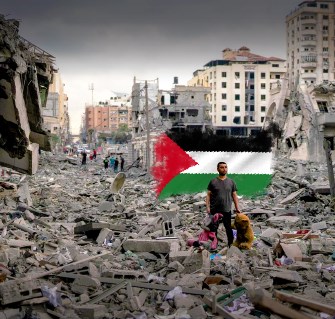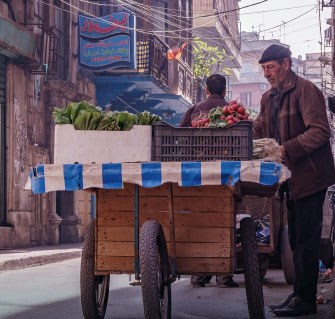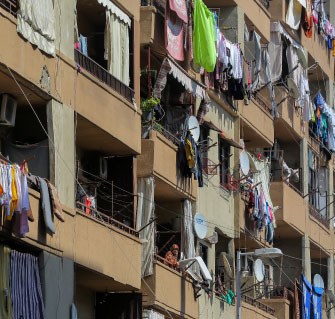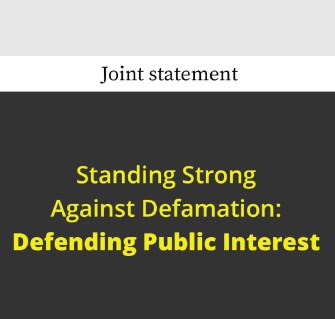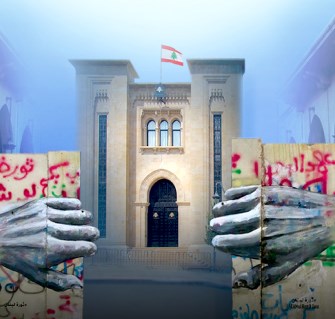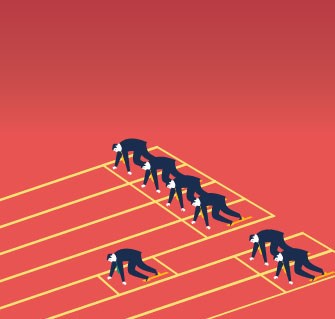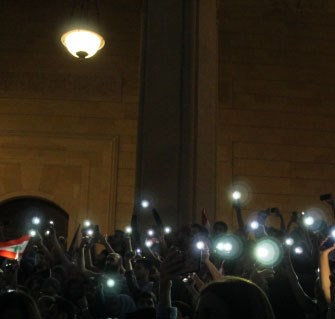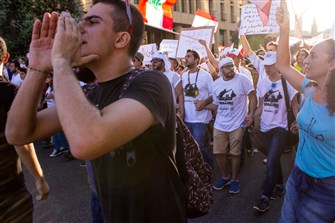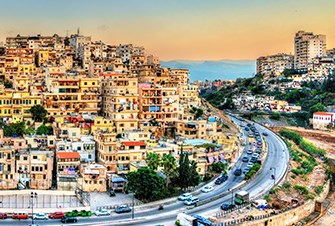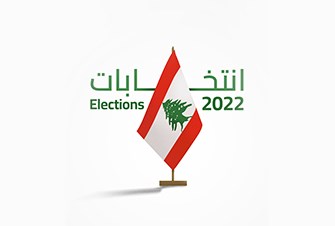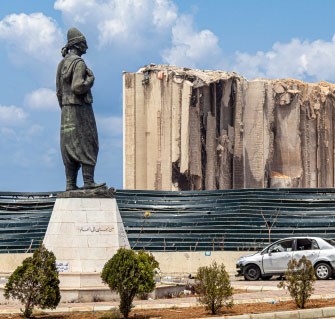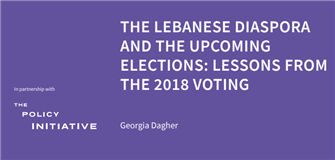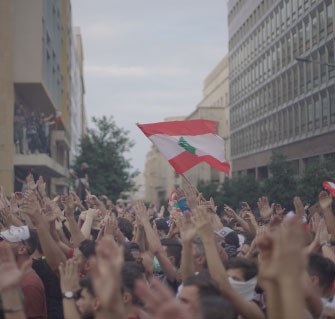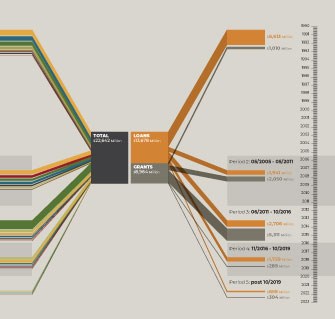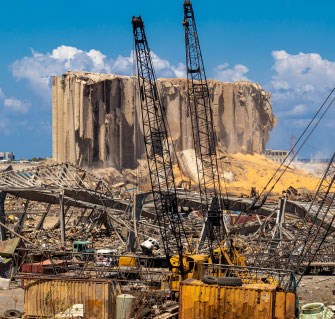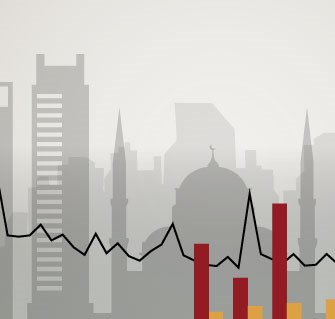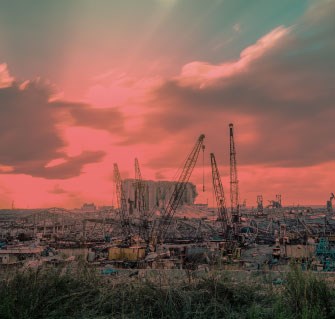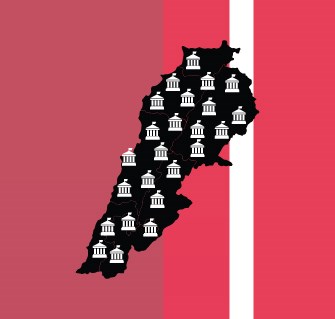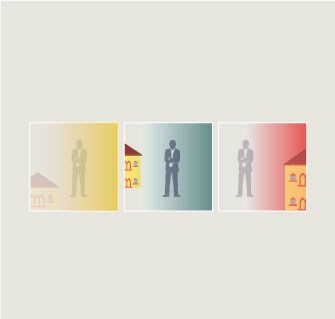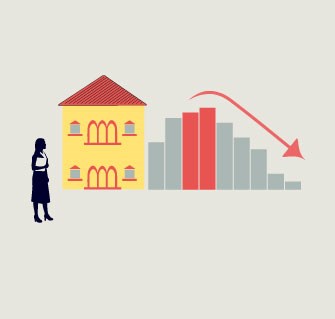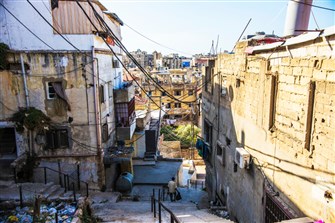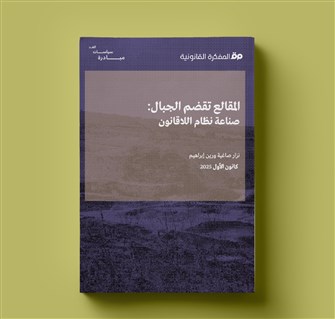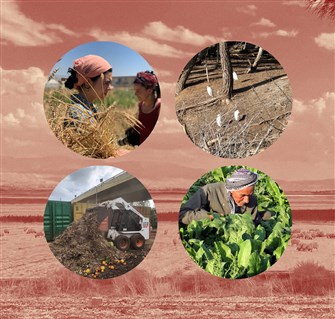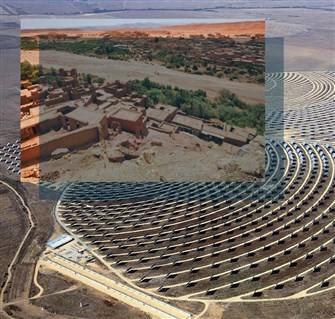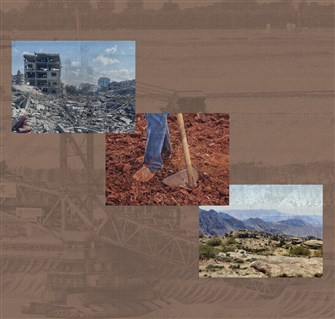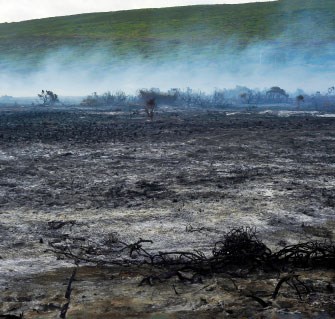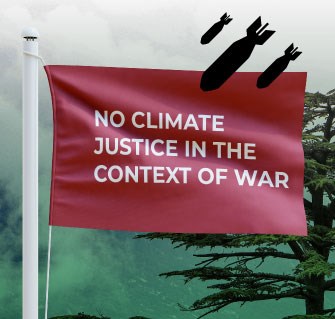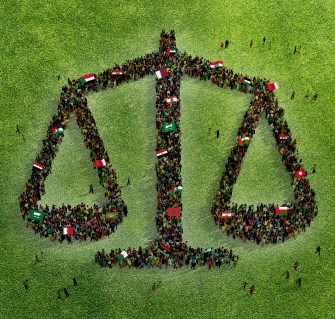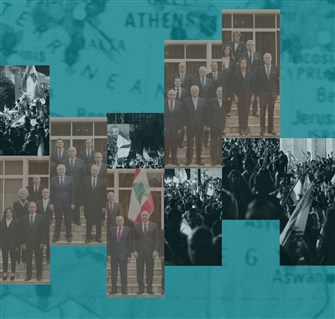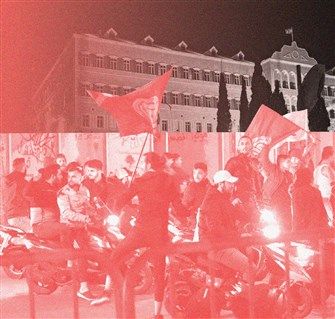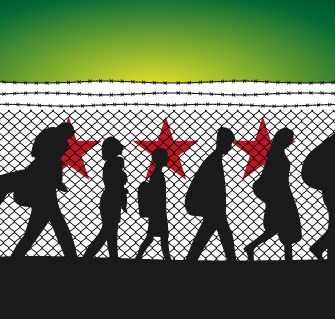The Policy Initiative
-
-
Building a state with a mission
The Lebanese state has been captured by a political elite that has put its own interest first and continuously failed to build a state that protects and provides for its citizens. This initiative seeks to not only rebuild public institutions but develop them so they address and pre-empt societal needs. Such a state must have an inclusive developmental goal where its role goes beyond fixing the market to actively shaping it. TPI envisions a dynamic, agile, and collaborative organizational capacity, an outcome-based budget, and strategic and efficient capital investment in key infrastructure—including the ports, roads, and energy. The state should not fund its mission and policies with grants and foreign loans, but with taxes that are equitable, progressive, and that provide incentive for productive investment while tackling tax evasion and avoidance.
-
12.10.25|Articleعربي
The Crisis They Engineered, The Geopolitics They Weaponize
Sami Zoughaib,Sami Atallah -
10.28.25|Articleعربي
Procedure Over Purpose: Reading Lebanon’s 2026 draft budget
Khaled Saad,Sami Atallah,Sami Zoughaib10.28.25|مقالةengإصلاح في الشكل لا في المضمون: قراءة في مسودّة موازنة لبنان لعام 2026
خالد سعد,سامي عطاالله,سامي زغيب -
10.06.25|Data visualizationعربي
What did the Lebanese State do in May 2025?
10.06.25|عرض مرئي للمعلوماتengما الذي أقرّته الدولة اللبنانية في أيّار 2025؟
-
09.22.25|Articleعربي
One Hundred Days of Nawaf Salam: Governing between momentum and veto
Lea Ghandour,Sami Atallah,Sami Zoughaib09.22.25|مقالةengمئة يوم من نوّاف سلام: الحُكم بين الزخم والفيتو
ليا غندور,سامي عطاالله,سامي زغيب -
09.08.25|Articleعربي
Rebuilding South Lebanon without Public Funds or Foreign Loans
Jamal Ibrahim Haidar -
08.28.25|Articleعربي
Reconstructing Lebanon’s Sovereignty: A national imperative
Sami Atallah,Mona Fawaz,Nizar Saghieh,Sami Zoughaib08.28.25|مقالةengإعادة بناء سيادة لبنان: ضرورة وطنيّة
سامي عطاالله,منى فواز,نزار صاغية,سامي زغيب -
08.07.25|Data visualizationعربي
What did the Lebanese State do in July 2025?
08.07.25|عرض مرئي للمعلوماتengما الذي أقرّته الدولة اللبنانية في تموز 2025؟
-
07.09.25|Data visualizationعربي
What did the Lebanese State do in June 2025?
-
06.12.25|Articleعربي
A War Without a State: Lebanon's response to the 2024 Israeli war
Sami Atallah,Sami Zoughaib,Lea Ghandour06.12.25|مقالةengحرب بدون دولة: السياسات اللبنانية أثناء حرب إسرائيل 2024
سامي عطاالله,سامي زغيب,ليا غندور -
05.20.25|Data visualizationعربي
What did the Lebanese State Do in April 2025?
05.20.25|عرض مرئي للمعلوماتengما الذي أقرّته الدولة اللبنانية في نيسان 2025؟
-
04.22.25|Data visualizationعربي
What did the Lebanese State Do in March 2025?
-
04.07.25|Articleعربي
Paying the Price: Lebanon’s public sector wage crisis and institutional collapse
Sami Zoughaib,Sami Atallah,Najib Zoghaib04.07.25|مقالةengكلفة الانهيار: أزمة رواتب القطاع العام في لبنان وتفكك المؤسسات
سامي زغيب,سامي عطاالله,نجيب زغيب -
03.29.25|Articleعربي
Captive to the Banks: How Karim Soueid’s appointment signals the end of reform
Sami Atallah,Sami Zoughaib03.29.25|مقالةengرهينة المصارف: كيف يشير تعيين كريم سعيد إلى نهاية الإصلاح
سامي عطاالله,سامي زغيب -
03.19.25|Data visualizationعربي
What did the Lebanese State do in February 2025?
03.19.25|عرض مرئي للمعلوماتengما الذي أقرّته الدولة اللبنانية في شباط 2025؟
-
02.27.25|Data visualizationعربي
What did the Lebanese State do in January 2025?
02.27.25|عرض مرئي للمعلوماتengما الذي أقرّته الدولة اللبنانية في كانون الثاني 2025؟
-
02.24.25|Articleعربي
Lebanon’s Ministerial Statement: A lost opportunity wrapped in political ambiguity
Sami Atallah,Sami Zoughaib02.24.25|مقالةengالبيان الوزاري اللبناني: فرصة ضائعة في بوتقة الضبابية السياسية
سامي عطاالله,سامي زغيب -
02.12.25|Article
نداء لحماية الممتلكات الثقافية بعد العدوان الإسرائيلي على لبنان
-
01.23.25|Articleعربي
A New Chapter for Lebanon: Will Aoun and Salam steer the country toward real reform?
Sami Atallah,Sami Zoughaib01.23.25|مقالةengلبنان أمام فصل جديد: هل يدير عون وسلام دفّة البلاد نحو إصلاح حقيقي؟
سامي عطاالله,سامي زغيب -
10.05.24|Article
بيان بشأن مسؤولية الدولة اللبنانية في مواجهة مفاعيل الحرب الإسرائيلية
-
09.11.24|Data visualizationعربي
What did the Lebanese State do in July 2024?
-
09.03.24|Data visualizationعربي
What did the Lebanese State do in June 2024?
-
08.14.24|Data visualizationعربي
What did the Lebanese State Do in May 2024?
-
07.10.24|Data visualizationعربي
What Did the Lebanese State Do in April 2024?
-
01.25.24|Article
موازنة 2024: الإضعاف المستمر للدولة وِسْطَ تجاهل الإصلاحات
-
01.24.24|Article
Lebanon's 2024 Budget: A lose-lose situation for people
Wassim Maktabi,Sami Atallah,Sami Zoughaib -
01.09.24|Articleعربي
Lebanon’s 2024 Draft Budget: Blindly curbing the fiscal deficit
Wassim Maktabi,Sami Atallah,Sami Zoughaib01.09.24|مقالةengمشروع موازنة لبنان لعام 2024: ضبط عشوائي للعجز
وسيم مكتبي,سامي عطاالله,سامي زغيب -
09.20.23|Articleعربي
Lebanon’s 2023 Draft Budget: Taxing the many, sparing the rich
Wassim Maktabi,Georgia Dagher,Sami Zoughaib,Sami Atallah09.20.23|مقالةengمشروع موازنة 2023: ضرائب تصيب الفقراء وتعفي الاثرياء
وسيم مكتبي,جورجيا داغر,سامي زغيب,سامي عطاالله -
09.15.23|Articleعربي
Lebanon’s 2023 Draft Budget: Aimless expenditure
Wassim Maktabi,Sami Zoughaib,Sami Atallah09.15.23|مقالةengمشروع موازنة لبنان لعام 2023: إنفاق بلا غاية
وسيم مكتبي,سامي زغيب,سامي عطاالله -
09.09.23|مقالةeng
بيان بشأن المادة 26 من مشروع قانون الموازنة العامة 2023
-
08.24.23|مقالةeng
من أجل تحقيق موحد ومركزي في ملف التدقيق الجنائي
-
07.21.23|Articleعربي
A Joint Statement on the IMF’s Article IV Report
-
06.13.23|Article
The Shadow Plan: How Lebanese elites are sabotaging their country’s IMF lifeline
Sam Heller,Sami Zoughaib -
09.01.22|Article
How do Cartels Work? Dealmaking at Lebanon’s council for development and reconstruction
Mounir Mahmalat,Wassim Maktabi -
07.12.22|Articleعربي
Impoverish and Conquer: How has the Lebanese state responded to the financial crisis?
Wassim Maktabi,Sami Zoughaib,Sami Atallah07.12.22|مقالةengأفقِر تسُد: كيف استجابت الدولة اللبنانية للأزمة المالية؟
وسيم مكتبي,سامي زغيب,سامي عطاالله -
05.27.22|Data visualization
Lebanese Parliamentary Elections: Votes that did and did not translate to seats
-
-
-
Shifting to a new economic paradigm
Lebanon’s extractive economic model that was adopted in the early 1990s has resulted in an unsustainable and jobless growth, prioritized rentier sectors over diversified and robust ones, and led to major inequalities and crises. In light of the country’s financial collapse, this initiative seeks to develop policies to stabilize the macroeconomy, distribute equitably the financial losses, and restructure the banking sector to kickstart the economy. These policies are part of a larger economic vision that transforms the various sectors in a way that they become productive, formal, export-based, and competitive. Lebanon can no longer rely on remittances to sustain its failing economy; it needs to focus on new sectors both in manufacturing and services, including digital economy and creative industry, so it creates a competitive for itself in the region.
-
12.03.25|Articleعربي
Budget 2026 Between Constraints and Opportunities: How small corrections can make a real difference
Khaled Saad,Sami Zoughaib,Sami Atallah12.03.25|مقالةengموازنة 2026 بين القيود والفرص: كيف يمكن لتغييرات بسيطة أن تحدث فرقًا حقيقيًّا
خالد سعد,سامي زغيب,سامي عطاالله -
04.24.25|Articleعربي
اقتراح قانون إنشاء مناطق اقتصادية تكنولوجية: تكنولوجيا للبيع في جزر نيوليبرالية
Legal Agenda,The Policy Initiativeتهدف هذه المسوّدة إلى تحقيق النمو الاقتصادي وخلق فرص عمل، غير أنّ تصميمها يصبّ في مصلحة قلّة من المستثمرين العاملين ضمن جيوب مغلقة، يستفيدون من إعفاءات ضريبية وكلفة أجور ومنافع أدنى للعاملين. وبالنتيجة، تُنشئ هذه الصيغة مساراً ريعيّاً فاسداً يُلحق ضرراً بإيرادات الدولة وبحقوق الموظفين وبالتخطيط الإقليمي (تجزئة المناطق). والأسوأ أنّ واضعي السياسات لا يُبدون أيّ اهتمام بتقييم أداء هذه الشركات أو مراقبته للتحقّق من تحقيق الغاية المرجوّة من المنطقة الاقتصاديّة.
Read more04.24.25|مقالةengاقتراح قانون إنشاء مناطق اقتصادية تكنولوجية: تكنولوجيا للبيع في جزر نيوليبرالية
المفكرة القانونية,مبادرة سياسات الغدتهدف هذه المسوّدة إلى تحقيق النمو الاقتصادي وخلق فرص عمل، غير أنّ تصميمها يصبّ في مصلحة قلّة من المستثمرين العاملين ضمن جيوب مغلقة، يستفيدون من إعفاءات ضريبية وكلفة أجور ومنافع أدنى للعاملين. وبالنتيجة، تُنشئ هذه الصيغة مساراً ريعيّاً فاسداً يُلحق ضرراً بإيرادات الدولة وبحقوق الموظفين وبالتخطيط الإقليمي (تجزئة المناطق). والأسوأ أنّ واضعي السياسات لا يُبدون أيّ اهتمام بتقييم أداء هذه الشركات أو مراقبته للتحقّق من تحقيق الغاية المرجوّة من المنطقة الاقتصاديّة.
اقرأ -
03.26.25|Articleعربي
BDL Governor: A decisive test for the new executive
03.26.25|مقالةengتعيين حاكم مصرف لبنان المركزي: اختبار حاسم للسلطة التنفيذية الجديدة
-
09.27.23|Articleعربي
Can Lebanon Export Cannabis for Medicinal Purposes?
Jamal Ibrahim Haidar,Hussein Zeaiter,Salem Darwich09.27.23|مقالةengهل يستطيع لبنان تصدير القنب للاستخدامات الطبية؟
جمال ابراهيم حيدر,حسين زعيتر,سالم درويش -
05.03.23|Articleعربي
On the Economic Potential of Cannabis Cultivation in Lebanon
Salem Darwich,Jamal Ibrahim Haidar,Hussein Zeaiter05.03.23|مقالةengإمكانات النموّ الاقتصادي من زراعة القنّب الهندي "الحشيش" في لبنان
سالم درويش,جمال ابراهيم حيدر,حسين زعيتر -
03.14.23|Articleعربي
How can Fiscal Policy Untap Lebanon’s Manufacturing Potential?
Jamal Ibrahim Haidar,Adeel Malik03.14.23|مقالةengكيف يمكن للسياسة المالية إطلاق العنان لإمكانات لبنان الصناعية؟
جمال ابراهيم حيدر,عديل مالك -
07.14.22|Articleعربي
Buying the Narrative: How Lebanese banks exploited the media to influence public opinion
Sami Zoughaib,Wassim Maktabi,Sami Atallah07.14.22|مقالةengشراء السردية العامة: كيف استغلت المصارف اللبنانية الإعلام للتأثير على الرأي العام
سامي زغيب,وسيم مكتبي,سامي عطاالله -
07.13.22|Articleعربي
Tourism and Remittances are not a Panacea for Lebanon's Financial Woes
Hussein Cheaito,Sami Zoughaib
-
-
-
Advancing socio-economic rights
While Lebanon’s labor market has failed to provide opportunities to the country’s high-skilled job seekers, the financial crisis and the pandemic have caused an unprecedented increase in vulnerabilities and new waves of economic migration. Through this initiative, TPI seeks to protect and develop the country’s human capital by enabling adequate and gender-sensitive social protection and labor rights policies, as well as by encouraging investments in people through accessible education and healthcare. In addition, TPI seeks to study the impact of the crisis on migrant and refugee workers and their increased vulnerabilities linked to their lack of labor rights. We also aim to examine the new trends in labor transformation, with the rise of the “gig economy” which make work temporary, unstable, and low paying, while disproportionately affecting the youth.
-
12.18.25|Articleعربي
The Gap Law: A settlement for banks paid by society
-
11.30.23|Article
Platform Work in Times of Crisis: Fairwork Lebanon ratings 2023
Wassim Maktabi,Oğuz Alyanak,Mark Graham -
11.28.22|Articleعربي
BdL’s Sayrafa: Social assistance of last resort?
Sami Zoughaib,Wassim Maktabi -
11.21.22|Articleعربي
Near Miss: Lebanon’s ESSN evades elite capture
Wassim Maktabi,Sami Zoughaib,Sami Atallah11.21.22|مقالةengنجاةٌ بأعجوبة: أفلت المشروع الطارئ لشبكة الأمان الاجتماعي المخصّص للبنان من قبضة الطبقة السياسية
وسيم مكتبي,سامي زغيب,سامي عطاالله -
11.04.22|Articleعربي
Distorted Social Contract: The dangerous trajectory of social protection systems in Lebanon
Sami Zoughaib -
08.24.22|Articleعربي
Lebanon’s Discretionary Spending Favors Public Sector Employees
Cynthia Saghir,Wassim Maktabi -
08.12.22|Articleعربي
Intentions Are Not Enough: Lebanon must adopt the national social protection strategy
Wassim Maktabi,Sami Zoughaib,Rania Eghnatious08.12.22|مقالةengالنوايا وحدها لا تكفي: لا بد أن يعتمد لبنان استراتيجية وطنية للحماية الاجتماعية
وسيم مكتبي,سامي زغيب,رانيا اغناطيوس -
06.16.22|Articleعربي
A Collapsing Society: The urgency of a social protection floor
Georgia Dagher,Sami Zoughaib -
04.08.22|Article
Lebanon’s “Missing Middle”: Online delivery workers under precarious conditions
Wassim Maktabi,Sami Zoughaib,Carol Abi Ghanem
-
-
-
Advocating for fair representation and accountability
Lebanon’s political system, which is based on the distribution of power and resources among the confessional political parties, undermined accountability and failed to represent the interests of the people. This initiative seeks to advance representative institutions through a progressive electoral law that would go beyond confessional quotas and would give equal chance to new candidates and emerging political parties, and electoral strategies that privilege policies rather than clientelistic practices. The initiative also monitors the role and involvement of the youth, women, and the diaspora in the electoral process as voters but also as change makers. While voters should be able to select candidates in an environment free of pressure and fear, holding their elected and appointed officials accountable goes beyond election; and so TPI seeks to strengthen the role of parliament, both in its legislative and oversight roles over the government and other public agencies.
-
11.26.25|Articleعربي
How the 2024 War Reordered Veto Power and Produced Only Selective Reform
Sami Atallah,Sami Zoughaib11.26.25|مقالةengكيف أعادت حربُ 2024 ترتيبَ قوى التعطيل ولم تُنتِج سوى إصلاحٍ انتقائيّ؟
سامي عطاالله,سامي زغيب -
11.12.25|Article
Digital Technology in Lebanon: A tool for fiscal and financial inclusion?
Karim Daher -
03.20.25|Articleعربي
Standing Strong Against Defamation: Defending public interest
-
02.05.24|Article
How Did the Lebanese Diaspora Vote in the 2022 Parliamentary Elections?
Georgia Dagher -
08.11.23|Articleعربي
Follow the Money: The informal channels of Lebanese media funding
Georgia Dagher,Sami Zoughaib,Sami Atallah08.11.23|مقالةeng"إتبع الأموال" القنوات غير الرسمية لتمويل وسائل الإعلام اللبنانية
جورجيا داغر,سامي زغيب,سامي عطاالله -
02.23.23|Article
A Roadmap Toward Fair and Competitive Elections in Lebanon
Georgia Dagher,Sami Atallah,Wassim Maktabi,Zeina Helou -
10.21.22|Articleعربي
How Do Lebanese Political Parties Win Elections?
Georgia Dagher,Sami Atallah,Najib Zoghaib10.21.22|مقالةengكيف تفوز الأحزاب السياسية اللبنانية في الانتخابات؟
جورجيا داغر,سامي عطاالله,نجيب زغيب -
07.21.22|Article
When Elections Don’t Matter?
Mounir Mahmalat,Sami Atallah,Sami Zoughaib,Wassim Maktabi -
05.31.22|Data visualization
Votes for Winning Candidates and Lists
-
05.13.22|Article
Tripoli Amidst Lebanon’s 2022 Parliamentary Elections: New faces, elite reshuffling and public disinterest
May Tamimova,Zeina Helou -
05.06.22|Articleعربي
2022 Parliamentary Elections: Electoral competition masking common interests
05.06.22|مقالةengالانتخابات النيابية: المنافسة تحجب المصالح المشتركة
-
05.02.22|Article
The Lebanese Diaspora and the Upcoming Elections: Lessons from the 2018 voting
Georgia Dagher
-
-
-
Leveraging aid for the public good
While Lebanon has long been a major recipient of foreign aid, successive governments have failed to capitalize on the funds to undertake policy and institutional reforms. In this initiative, TPI seeks to examine the priority areas where aid should flow and how to make it effective so it serves the public good and not the interest of the ruling elite. This initiative covers foreign aid directed toward the Lebanese state and its citizens, but also the one supporting refugee populations. TPI also seeks to analyze the aid architecture and its new institutional arrangement to ensure the proper participation of key stakeholders.
-
10.10.24|Article
The Strange Case of the EU’s Partnership as Lebanon is Ravaged by Israel’s Machine of Death
Reinoud Leenders -
08.14.23|عرض مرئي للمعلوماتeng
تاريخ لبنان في المساعدات الانمائية الدولية
-
05.12.23|Articleعربي
Limits of Reforms and Conditionalities in Lebanon's 3RF
Wassim Maktabi,Sami Zoughaib,Sami Atallah,Mona Harb,Sophie Bloemeke05.12.23|مقالةengمحدودية الإصلاحات وشروطها في إطار الإصلاح والتعافي وإعادة الإعمار في لبنان
وسيم مكتبي,سامي زغيب,سامي عطاالله,منى حرب,صوفي بلوميكي -
03.08.23|Articleعربي
From Hariri's Loans to Aoun's Drought
Mounir Mahmalat,Sami Atallah,Sami Zoughaib -
11.07.22|Articleعربي
Disaster Governance and Aid Effectiveness: The case of Lebanon’s 3RF
Sophie Bloemeke,Mona Harb11.07.22|مقالةengإدارة الكوارث وفعالية المساعدات: دراسة لإطار الإصلاح والتعافي وإعادة الإعمار في لبنان
صوفي بلوميكي,منى حرب
-
-
-
Activating effective local development
While municipalities have wide prerogatives and fiscal autonomy to undertake local development, their ability to do so is constrained by insufficient and deteriorating revenues, weak administrative capacity, and limited understanding of local development and planning. Through this initiative, TPI rethinks decentralized development by assessing the capacity of local authorities and by suggesting policies to ensure public service delivery and local economic development. We aim also to evaluate how municipalities are responding to contain Lebanon’s various crises, what measures they are adopting, who takes those decisions, and how effective they have been. This needs proper electoral representation through fair municipal elections and a governance system that would incentivize elected officers to serve the people.
-
05.03.25|Articleعربي
Why Elections don’t Matter until Municipalities are Radically Transformed
Sami Zoughaib,Sami Atallah,Rana Al Habr,Mona Harb05.03.25|مقالةengلا تكتسب الانتخابات معنًى ما لَمْ تشهد البلديّات تحوُّلًا بنيويًّا جذريًّا
سامي زغيب,سامي عطاالله,رنا الهبر,منى حرب -
03.31.22|Articleعربي
How Have Municipalities Interacted with the IMPACT Platform?
Wassim Maktabi,Sami Zoughaib,Sami Atallah,Mounir Mahmalat03.31.22|مقالةengIMPACT كيف تفاعلت البلديات مع منصّة
وسيم مكتبي,سامي زغيب,سامي عطاالله,منير مهملات -
03.30.22|Articleعربي
How is Aid Reenergizing Municipal Clientelist Channels?
Wassim Maktabi,Sami Zoughaib,Sami Atallah03.30.22|مقالةengكيف تعيد المساعدات الحكومية تنشيط قنوات الزبائنية البلدية
وسيم مكتبي,سامي زغيب,سامي عطاالله -
03.28.22|Articleعربي
What is the Effect of Political Affiliations on Municipal Transparency?
Mounir Mahmalat,Wassim Maktabi,Sami Atallah,Sami Zoughaib03.28.22|مقالةengما هو أثر الانتماءات السياسية على شفافية البلديات واتحادات البلديات؟
منير مهملات,وسيم مكتبي,سامي عطاالله,سامي زغيب -
03.28.22|Articleعربي
What is the Effect of Being a Member of Municipal Unions on Transparency?
Mounir Mahmalat,Wassim Maktabi,Sami Zoughaib,Sami Atallah03.28.22|مقالةengما هو تأثير العضوية في الاتحادات البلدية على شفافية البلديات؟
منير مهملات,وسيم مكتبي,سامي زغيب,سامي عطاالله -
03.26.22|Articleعربي
What Determines the Transparency of Municipalities?
Mounir Mahmalat,Sami Zoughaib,Wassim Maktabi,Sami Atallah03.26.22|مقالةengما الذي يحدّد مدى شفافية البلديات؟
منير مهملات,سامي زغيب,وسيم مكتبي,سامي عطاالله -
03.26.22|Articleعربي
How Transparent are Lebanon’s Municipalities?
Mounir Mahmalat,Wassim Maktabi,Sami Zoughaib,Sami Atallah03.26.22|مقالةengمؤشّر الشفافية المؤسّسية لقياس شفافية البلديات في لبنان
منير مهملات,وسيم مكتبي,سامي زغيب,سامي عطاالله -
03.26.22|Articleعربي
How Local-Level Transparency can Restore Citizens’ Trust
Mounir Mahmalat,Sami Atallah,Wassim Maktabi,Sami Zoughaib03.26.22|مقالةengكيف يمكن للشفافية على المستوى المحلي أن تكون أداة لاستعادة ثقة المواطنين
منير مهملات,سامي عطاالله,وسيم مكتبي,سامي زغيب -
03.26.22|Articleعربي
Preying on Poverty: Municipalities and poverty targeting applications
Sami Zoughaib,Wassim Maktabi,Sami Atallah03.26.22|مقالةengاستغلال الفقر: البلديات وطلبات المساعدات المستهدفة للفقر
سامي زغيب,وسيم مكتبي,سامي عطاالله
-
-
-
Investing in environmental sustainability
Lebanon’s environmental problems are many: Increasing air pollution, polluted water sources, untreated sewage, ineffective waste management, and unprotected natural resources and cultural heritage, compounded by the threat of climate change which is expected to affect agriculture and the coast, among many other things. Through this initiative, TPI seeks to place the preservation of the environment at the center of economic development. To this end, we aim to push for policies to enhance investment in physical capital that protects our natural resources as well as address looming threats such as land degradation and desertification which could exacerbate food insecurities and displacement.
-
11.21.25|Articleعربي
وصفة لتبييض المسؤوليات في مجال الصرف الصحّي: الخلل في الصرف الصحي نظاميّ أيضًا
Nizar Saghieh,Fadi Ibrahim11.21.25|مقالةengوصفة لتبييض المسؤوليات في مجال الصرف الصحّي: الخلل في الصرف الصحي نظاميّ أيضًا
نزار صاغية,فادي إبراهيم -
10.30.25|Articleعربي
Green Struggles: Agro-ecologists and experiments for just environmental futures in Lebanon
Luna Dayekh,Mona Harb10.30.25|مقالةengالنضال الأخضر: الإيكولوجيّون الزّراعيّون وتجاربهم من أجل مستقبل بيئيّ عادل في لبنان
لونا دايخ,منى حرب -
10.15.25|Articleعربي
Contested Ground: Why land grabbing is accelerating in the Arab World
Ghinwa Harik,Rami Zurayk10.15.25|مقالةengأرضٌ متنازَعٌ عليها: لماذا تتسارع عمليّات الاستيلاء على الأراضي في العالم العربيّ
غنوى حريق,رامي زريق -
09.26.25|Articleعربي
Beyond Agriculture: Unpacking the many faces of land grabbing in the Arab World
Rami Zurayk,Ghinwa Harik09.26.25|مقالةengما بعد الزراعة: كشف النقاب عن وجوه الاستيلاء على الأراضي في العالم العربيٍّ
رامي زريق,غنوى حريق -
06.10.25|Articleعربي
Climate, Land, and Rights: The quest for social and environmental justice in the Arab region
-
11.27.24|Articleعربي
Arab-Israeli Environmental Cooperation: A controversial path to peace amid ecocide
Mona Khechen11.27.24|مقالةengالتعاون البيئي العربي - الإسرائيلي: مسار جَدَلي نحو السلام في ظلّ إبادة بيئية
منى خشن -
05.27.24|Articleعربي
Climate, Land, and Rights: The quest for social and environmental justice in the Arab region
Mona Khechen05.27.24|مقالةengالمناخ والأرض والحق: السعي للعدالة الاجتماعية والبيئية في المنطقة العربية
منى خشن
-
-
-
Fostering political and social stability
Domestic political polarization exacerbated by increasing regional tensions render Lebanon a fertile ground for conflict and organized violence. In this initiative, TPI seeks to identify the different forms of violence, their geographies, and their drivers. We are particularly interested in social unrest—between and within Lebanese political or sectarian groups—state violence, tension exacerbated by the presence of refugees, and continued threats and breaches of Lebanese sovereignty. We also seek to identify regional turbulence and tensions and the mechanisms by which they spill over to the domestic landscape.
-
11.06.25|Article
Beyond Security Fixes: Toward a sovereignty-based reform pact in Lebanon
Sami Atallah,Sami Zoughaib -
10.21.25|Article
Security Without Legitimacy: The limits of sovereignty from above
Joseph Daher,Sami Zoughaib,Sami Atallah -
08.19.25|Articleعربي
Lebanon’s Sovereignty Battle Isn’t Just Over Arms
Joseph Daher,Sami Zoughaib,Sami Atallah08.19.25|مقالةengالصّراع على سيادة لبنان يتجاوز مسألة السّلاح فقط
جوزيف ضاهر,سامي زغيب,سامي عطاالله -
02.12.24|Articleعربي
Economic Impact of the War in Lebanon: Real and potential losses
Sami Zoughaib,Wassim Maktabi,Sami Atallah02.12.24|مقالةengالأثر الاقتصادي للحرب في لبنان: الخسائر الحقيقية والمحتملة
سامي زغيب,وسيم مكتبي,سامي عطاالله
-



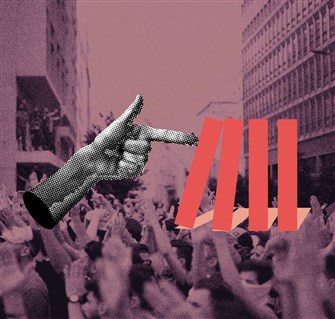
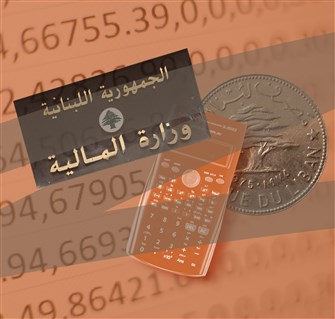
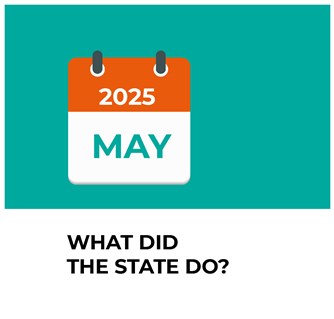
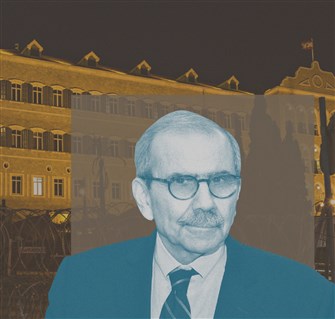
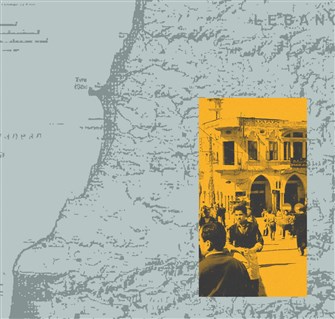
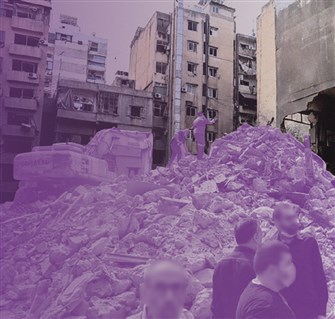



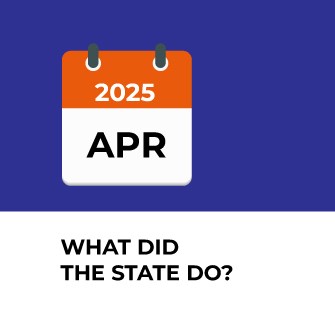
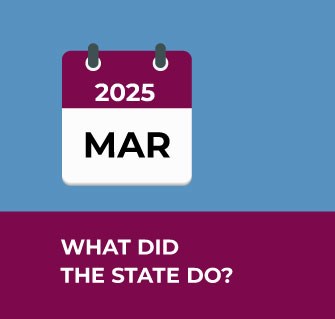
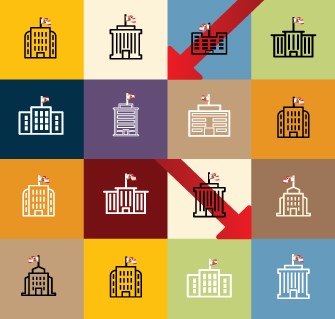

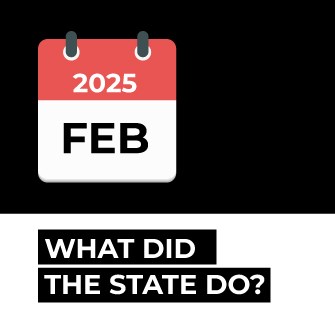
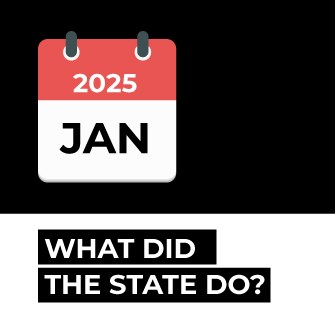
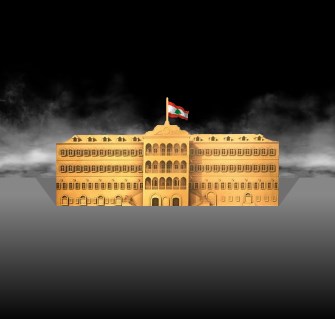
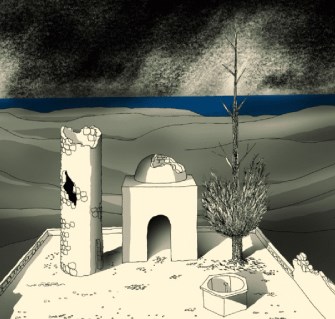




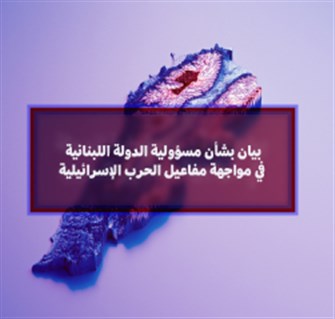
.jpg)
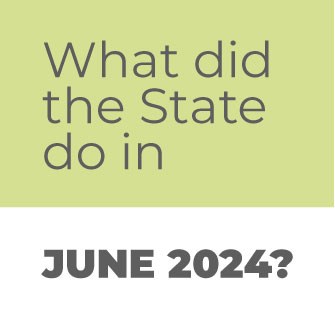
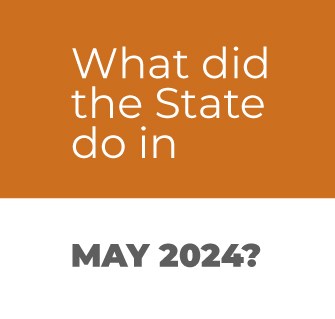
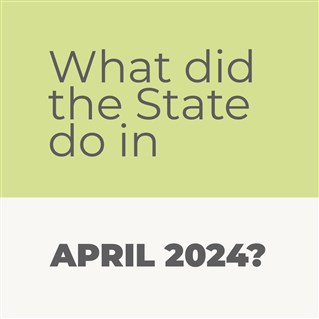
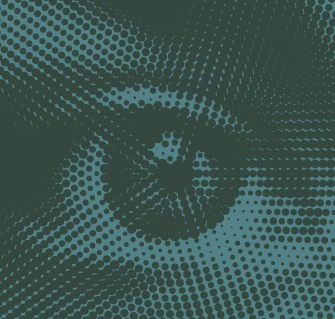

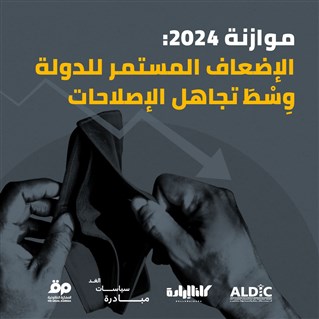



.png)
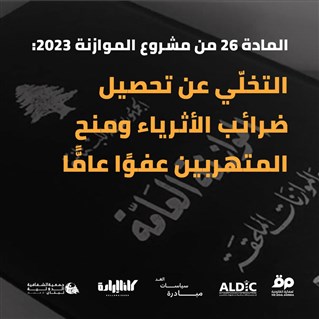
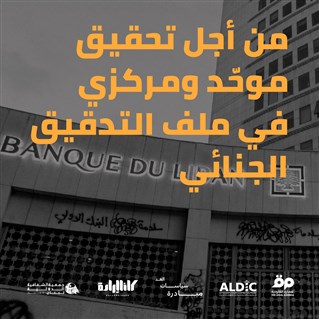
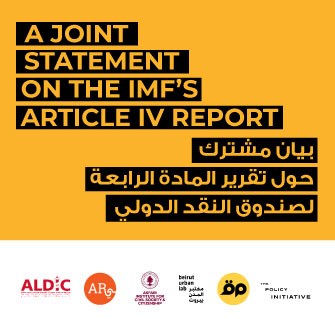
.png)
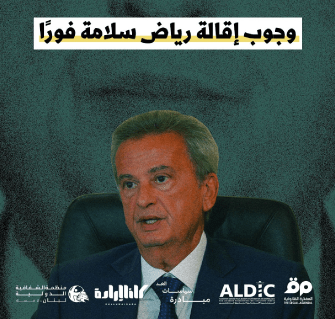
.png)

